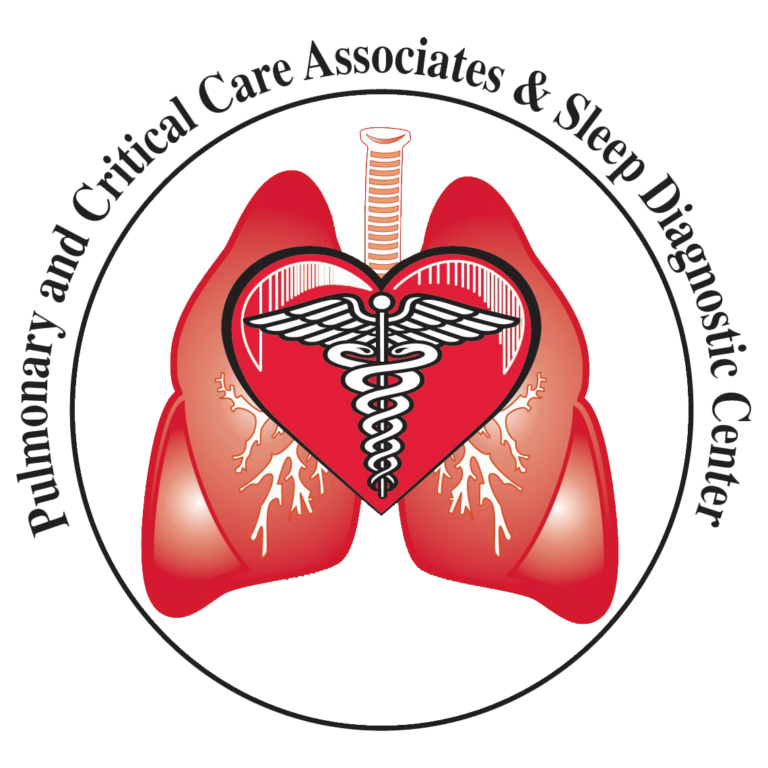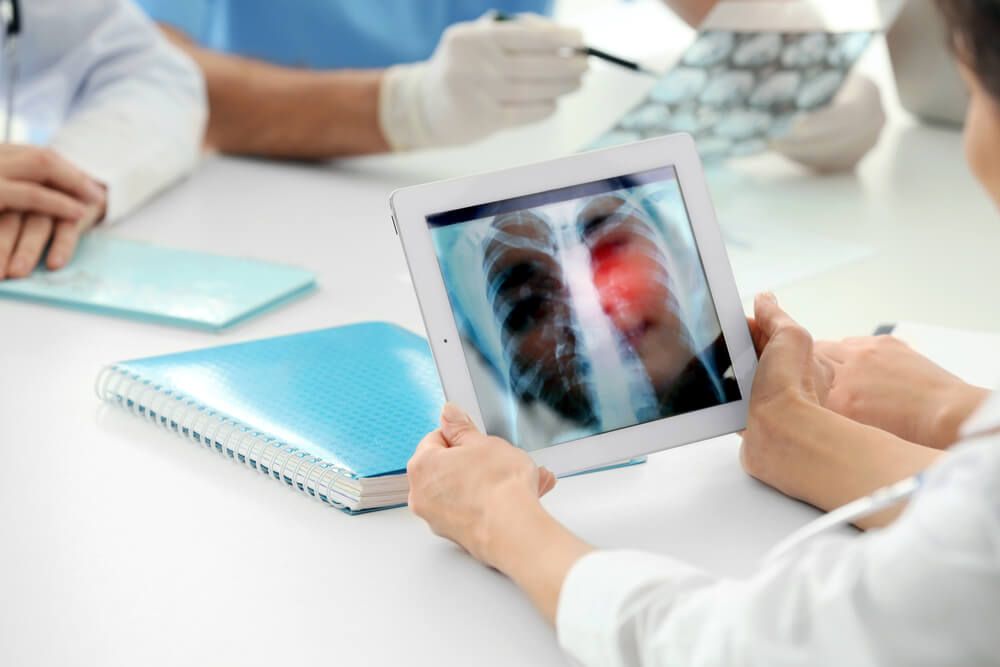What is lung cancer?
Lung cancer happens when normal cells in the lungs change into abnormal cells and grow out of control. There are different types of lung cancer. Some types grow much faster than others.
In the United States, lung cancer is the biggest cause of deaths from cancer in men and women.
What are the symptoms of lung cancer?
Common symptoms of lung cancer can include:
- Cough
- Trouble breathing, or wheezing
- Spitting or coughing up blood
- Chest pain that can be dull, sharp, or stabbing
- Hoarse voice
- Headache and swelling of the face, arms, or neck
If the cancer is growing in the top part of the lungs, it can also cause:
- Pain in the arm, shoulder, or neck
- Droopy eyelid or blurred vision
- Weakness of the hand muscles
All of these symptoms can also be caused by conditions that are not lung cancer. But if you have these symptoms, you should let your doctor or nurse know.
Is there a test for lung cancer?
Yes. If your doctor suspects that you have lung cancer, she or she will do an exam and a chest X-ray. If the chest X-ray shows a spot that looks like it could be cancer, he or she will probably follow up with other tests. These can include:
- Blood tests
- CT or PET scan – These imaging tests create pictures of the inside of your body. They can show abnormal growths.
- Biopsy – A doctor will remove a small sample of tissue from the lung. He or she will look at the sample under a microscope to see if it has cancer.
What is lung cancer staging?
Cancer staging is a way in which doctors find out how far a cancer has spread.
The right treatment for you will depend, in part, on the stage of your lung cancer. Your treatment will also depend on the type of lung cancer you have, your age, and your other health problems.
How is lung cancer treated?
Most people with lung cancer have 1 or more of the following treatments:
- Surgery – Lung cancer can sometimes be treated with surgery to remove the cancer.
- Radiation therapy – Radiation kills cancer cells.
- Chemotherapy – Chemotherapy is the medical term for medicines that kills cancer cells or stop them from growing.
- Targeted therapy – Some medicines work only for cancers that have certain characteristics. Your doctor might test your tumor to see if you have a kind of lung cancer that would respond to these medicines.
- Immunotherapy – This is the term doctors use for medicines that work with the body’s infection-fighting system (the “immune system”) to stop cancer growth.
People with lung cancer also receive treatment for any symptoms they have. For example, if you have trouble breathing because fluid has collected around your lungs, your doctor can drain the fluid to help you breathe more easily.
What happens after treatment?
For some cancers, treatment lasts a certain amount of time. For others, treatment is ongoing. You will be checked regularly to see if your lung cancer comes back after you finish treatment, or is growing even with treatment. Follow up tests usually include exams, chest X-rays, or CT scans. You should also watch for the symptoms listed above, because having those symptoms could mean the cancer has come back or grown. Tell your doctor or nurse if you have any symptoms.
What happens if the lung cancer comes back or starts to grow?
If the lung cancer comes back or starts to grow, you might have more treatment, using 1 or more of the options above.
Can lung cancer be prevented?
Maybe. The best way to avoid getting lung cancer is to not smoke. People who smoke have a much higher chance than those who don’t smoke of getting lung cancer. If you smoke, you can reduce your chance of getting lung cancer by quitting smoking.
What else should I do?
It is important to follow all your doctors’ instructions about visits and tests. It’s also important to talk to your doctor about any side effects or problems you have during treatment.
Getting treated for lung cancer involves making many choices, such as what treatment to have and when.
Always let your doctors and nurses know how you feel about a treatment. Any time you are offered a treatment, ask:
- What are the benefits of this treatment? Is it likely to help me live longer? Will it reduce or prevent symptoms?
- What are the downsides to this treatment?
- Are there other options besides this treatment?
- What happens if I do not have this treatment?






